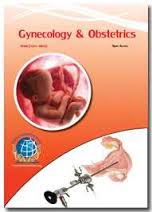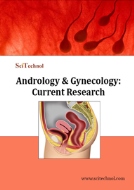Theme: Reproductive health and well-being in conditions of risk and vulnerability
Reproductive Health 2016
ConferenceSeries Ltd invite you to the International conference on Reproductive Health, to be held during December 01-02, 2016 at San Antonio,Texas, USA. Reproductive Health-2016 focuses on the theme “Reproductive health and well-being in conditions of risk and vulnerability ".
The conference is going to cover various topics like Reproductive Health, Reproductive anatomy, Endocrinology, Safe motherhood, Pregnancy, Contraceptives, Adolescent reproductive health, Traditional practises in sexual medicine, Sexually transmitted diseases, Genetic and genomic sciences, Sexual medicine, Child reproductive health, Legal implications on sexual rights, Gender based violence and gender equality. This ​event targets the audience from ​academic ​or ​professional ​interest ​in ​ Reproduction ​and ​its ​research; including ​Endocrinologists, physicians, gynecologists, researchers, ​senior scientists, ​postgraduate ​students, ​clinicians, ​pharmacologists, ​and ​those ​who ​work ​in ​research ​and ​development ​of ​pharmaceuticals ​and ​related ​technology.
ConferenceSeries Ltd Organizes 1000+ Global Events Every Year across USA, Europe & Asia with support from 1000 more scientific societies and Publishes 700+ Open access journals which contains over 100000 eminent personalities, reputed scientists as editorial board and organizing committee members.
Track 1 : Reproductive Health
Reproductive health refers to the illnesses, disorders and conditions that affect the functioning of the male and female reproductive systems during all phases of life.
Reproductive health as a state of whole physical, mental and community well-being, reproductive health speeches the reproductive developments, functions and system at all phases of life. Reproductive health, consequently, suggests that people are able to have a liable, satisfying and safer sex life and that they have the ability to reproduce and the liberty to choose if, when and how frequently to do so. One clarification of this suggests that men and women should to be informed of and to have contact to safe, effective, reasonable and acceptable methods of birth control; also contact to appropriate health care facilities of sexual, reproductive medicine and application of health training programs to pressure the importance of women to go safely through pregnancy and childbirth could offer couples with the best chance of having a healthy baby. On the other hand, individuals do face variations in reproductive health services. Variations vary based on socioeconomic status, education level, age, civilization, religion, and incomes available in their environment. It is possible aimed at circumstance, that low income individuals absence the resources for appropriate health services and the information to know what is appropriate for preserving reproductive health.
Recommended Reproductive Health Conference | Family Planning Meetings | Women Health care Events | Conference Series LLC
World Congress on Midwifery and Women’s Health August 29-31, 2016 Georgia, Atlanta, USA; 6th Euro Virology Congress and Expo March 10-12, 2016 Madrid, Spain; 2nd World Congress on Breast Cancer September 19-21, 2016 Phoenix, Arizona, USA; 3rd International Conference on Gynecology & Obstetrics November 24-26, 2016 Dubai, UAE; 4th International Conference on HIV/AIDS, STDs and STIs October 03-05, 2016Orland,Florida, USA; Improving Services, Safeguarding and Meeting the National Reporting Requirements for Female Genital Mutilation (FGM) 10 May 2016, London, United Kingdom; 24th World Congress on Controversies in Obstetrics, Gynecology & Infertility, 10–13 November 2016, Amsterdam, Netherlands; Topics in Women's Health and Obstetric/Gynecologic Emergency Medicine Eastern Caribbean Cruise,26 November – 3 December 2016,Fort Lauderdale, United States; Nyanza Reproductive Health Society Kenya ; Georgian Association of Reproductive Health, Georgia; American Society For Reproductive Medicine; Austrian Society of Sterility, Fertility and Endocrinology, Austria
Track 2 : Family Planning Services
Women access to family planning facilities are empowered to make lifesaving choosing such as delaying motherhood, spacing their pregnancies and avoiding accidental pregnancies and abortions. Females who make these choosing and plan their relations prevent as various as one in each three maternal deaths and more than two million new-born and adolescent deaths. Yet, many more lives could be saved.
Family Planning Postpartum women need to know the benefits of control and spacing their following pregnancy for their own and their baby’s well-being, and that it is probable to develop pregnant earlier the arrival of menses. If they are not breastfeeding, their fertility may return by six weeks after childbirth. A female’s fertility can arrival within two weeks after an abortion or failure. So, it is important that women who receive post abortion care leave hospitals with modern contraceptive methods and Family Planning information. By providing Family Planning counselling and appropriate contraceptive systems at the time females accept post abortion care facilities, providers can help females avoid the dangerous cycle of unwanted pregnancy and abortion.
Recommended Reproductive Health Conference | Family Planning Meetings | Women Health care Events | Conference Series LLC
3rd International Conference on Gynecology & Obstetrics November 24-26, 2016 Dubai, UAE; 6th Euro Virology Congress and Expo March 10-12, 2016 Madrid, Spain; 3rd World Congress on Women’s Health and Breast Cancer October 03-05, 2016 London, UK; International conference on Adolescent Medicine & Child Psychology September 28-30, 2015 Houston, USA; Primary Care and Women's Health: Key Topics and Core Strategies Eastern Caribbean Cruise 5–12 June 2016, Fort Lauderdale, United States; 24th World Congress on Controversies in Obstetrics, Gynecology & Infertility, 10–13 November 2016, Amsterdam, Netherlands; Improving Services, Safeguarding and Meeting the National Reporting Requirements for Female Genital Mutilation (FGM) 10 May 2016, London, United Kingdom; Georgian Association of Reproductive Health, Georgia; American Society For Reproductive Medicine, USA; Pacific Society for Reproductive Health; Nyanza Reproductive Health Society Kenya
Track 3 : Women Healthcare
Women's Health refers to physical and mental wellbeing of woman. Some of them relate to genetic issues such as Healthy Pregnancy, Thyroid, etc. while others may include serious gynaecological issues caused by hormonal or physical imbalance specific or most notable in females.
Mental Illness influence woman distinctively a few issue are more basic in woman, and some communicate with various indications. Researchers are just now starting to tease separated the commitments of different organic and involving both psychic and social aspects components to emotional well-being and dysfunctional behaviour in both woman and men.
Mother Health to react and give help to pregnant ladies and kids in ranges of severe affliction and compelling destitution. This is focused on reduce the maternal and new-born child death rates by making sound, feasible all include birthing focuses utilizing the model of consideration with socially proper training for the wellbeing and strengthening of ladies.
Recommended Reproductive Health Conference | Family Planning Meetings | Women Health care Events | Conference Series LLC
4th International Conference on HIV/AIDS, STDs and STIs October 03-05, 2016Orland,Florida, USA; World Congress on Midwifery and Women’s Health August 29-31, 2016 Georgia, Atlanta, USA; 2nd World Congress on Breast Cancer September 19-21, 2016 Phoenix, Arizona, USA; Polycystic Ovarian Syndrome Conference November 16-18, 2015 Seattle, USA; Improving Services, Safeguarding and Meeting the National Reporting Requirements for Female Genital Mutilation (FGM) 10 May 2016, London, United Kingdom; Topics in Women's Health and Obstetric/Gynecologic Emergency Medicine Eastern Caribbean Cruise,26 November – 3 December 2016,Fort Lauderdale, United States; Women's Health Western Mediterranean Cruise 31 July – 7 August 2016 Barcelona, Spain; Controversies in Women’s Health 16–18 June 2016 Chicago, United States; Bulgarian Association of Sterility & Reproductive Health, Bulgaria ; National family planning &Reproductive health Association; Ibis Reproductive Health;The European Society of Contraception and Reproductive Health.
Track 4 : Contraception-Birth Control
Birth control, also well-known as contraception and fertility control, is a method used to avoid pregnancy. Birth control systems have been used since ancient times, but actual and safe methods only became available in the 20th century. The most effective systems of birth control are sterilization by means of vasectomy in males and tubal ligation in females, intrauterine devices (IUDs), and implantable delivery control. This is tracked by a number of hormone based methods including oral pills, covers, vaginal rings, and injections. Less operative methods include physical barriers such as condoms, diaphragms and labour control sponges and fertility awareness methods. The least operative methods are spermicides and removal by the male before ejaculation. Sterilization, while highly operative, is not usually reversible; all other methods are reversible, most proximately upon stopping them. Safe sex performs, such as with the use of male or female condoms, can also help avoid sexually transmitted toxicities. Other methods of birth control do not protect against sexually transmitted diseases. Emergency labour control can prevent pregnancy if taken within the 72 to 120 hours after unprotected sex. Some maintain not having sex as a form of birth control, but abstinence-only sex education may rise adolescent pregnancies if accessible without birth control training, due to nonconformity.
Recommended Reproductive Health Conference | Family Planning Meetings | Women Health care Events | Conference Series LLC
World Congress on Midwifery and Women’s Health August 29-31, 2016 Georgia, Atlanta, USA; 8th World Congress on Virology November 28-30, 2016 San Antonio, USA; 15th Annual Conference on HIV Vaccines & Therapeutics December 08-09,2016Philadelphia, USA; 3rd International Conference on Gynecology & Obstetrics November 24-26, 2016 Dubai, UAE; 12th Conference of the International Federation of Professional Abortion and Contraception Associates, 13–15 October 2016, Lisboa, Portugal; ESGO 2016 State of the Art Gynaecological Oncology Conference, 8–10 September 2016, Antalya, Turkey; Topics in Family Medicine, Women's Health and Healthcare Communications Eastern Caribbean Cruise 8–15 May 2016, Fort Lauderdale, United States; Primary Care and Women's Health: Key Topics and Core Strategies Eastern Caribbean Cruise 5–12 June 2016, Fort Lauderdale, United States; Moroccan Society of Fertility and Contraception, Morocco; Italian Society of Fertility, Sterility and Reproductive Medicine (SIFES), Italy ; British Fertility Society, United Kingdom; Austrian Society of Sterility, Fertility and Endocrinology, Austria .
Track 5 : Reproductive Medicine
Reproductive medicine is a department of medicine that deals with prevention, diagnosis and management of reproductive problems Reproductive medicine goals include improving or maintaining reproductive health and allowing people to have children at a time of their choosing. It is form on knowledge of reproductive anatomy, physiology, and endocrinology, and incorporates applicable aspects of molecular biology, biochemistry and pathology.
Reproductive medicine addresses matters of sexual education, adolescence, family planning, birth control, infertility, reproductive system disease and erotic dysfunction. In women, reproductive medicine also covers menstruation, pregnancy and menopause, as well as gynaecologic complication that affect fertility.
The field work together with and connections mainly with reproductive endocrinology and infertility, sexual medicine and anthology, but also to some grade with gynaecology, obstetrics, urology, genitourinary medicine, therapeutic endocrinology, paediatric endocrinology, genetics, and psychiatry.
Recommended Reproductive Health Conference | Family Planning Meetings | Women Health care Events | Conference Series LLC
World Congress on Breast Cancer August 03-05, 2015 Birmingham, UK; 2nd International Conference on Gynecology & Obstetrics November 16-18, 2015 San Antonio, USA; 3rd International Conference on HIV/AIDS, STDs & STIs November 30-December 02, 2015 Hilton Atlanta Airport, Atlanta, USA; World Congress on Midwifery and Women’s Health August 29-31, 2016 Georgia, Atlanta, USA; 3rd World Congress on Women’s Health and Breast Cancer October 03-05, 2016 London, UK; 7th Africa Conference on Sexual and Rights Feb 8-12 2016|ACCRA,GHANA; American College of Obstetrics and Gynecology 2016 Annual Meeting 14–17 May 2016, Washington, D.C., United States; Topics in Women's Health Baltic Cruise, 5–14 September 2016, Copenhagen, Denmark; 12th Conference of the International Federation of Professional Abortion and Contraception Associates, 13–15 October 2016, Lisboa, Portugal; Nyanza Reproductive Health Society Kenya ;ASRM - American Society for Reproductive Medicine; Association for Fertility and Reproductive Health (AFRH), Nigeria; Bulgarian Association of Sterility & Reproductive Health, Bulgaria .
Track 6 : Reproductive Endocrinology
Reproductive endocrinology and infertility is a precise subspecialty of obstetrics and gynaecology that Pullmans physicians in reproductive medicine make a speech hormonal functioning as it affects to reproduction as well as the matter of infertility. Although most REI specialists mainly focus on the treatment of infertility, reproductive endocrinologists are trained to also estimate and treat hormonal dysfunctions in females and males outside infertility. Reproductive endocrinologists have specialty working out in obstetrics and gynaecology before they undergo sub-specialty training (fellowship) in REI.
Reproductive surgery is a related field, where a surgeon in urology further specializes to operate on anatomical disorders that affect fertility.
Recommended Reproductive Health Conference | Family Planning Meetings | Women Health care Events | Conference Series LLC
4th International Conference on HIV/AIDS, STDs and STIs October 03-05, 2016Orland,Florida, USA; 6th Euro Virology Congress and Expo March 10-12, 2016 Madrid, Spain; 15th Annual Conference on HIV Vaccines & Therapeutics December 08-09,2016Philadelphia, USA; International conference on Adolescent Medicine & Child Psychology September 28-30, 2015 Houston, USA; 24th World Congress on Controversies in Obstetrics, Gynecology & Infertility, 10–13 November 2016, Amsterdam, Netherlands; 12th Conference of the International Federation of Professional Abortion and Contraception Associates, 13–15 October 2016, Lisboa, Portugal; ESGO 2016 State of the Art Gynaecological Oncology Conference, 8–10 September 2016, Antalya, Turkey; Venezuelan Society of Obstetrics and Gynecology (SOGVZLA), Venezuela ; Russian Association of Human Reproduction (RAHR), Russia; Obstetrical and Gynecological Society of Singapore (OGSS), Singapore ; American Society For Reproductive Medicine, USA .
Track 7 : Reproductive Toxicology
Reproductive toxicity is a hazard related with some chemical substances, that they will affect in some way with usual reproduction; such materials are called reprotoxic. It comprises adverse properties on sexual role and fertility in mature males and women, as well as developmental toxicity in the offspring. It is normal to take a practical meaning, including a number of different properties which are unconnected to each other excepting in their consequence of lowered effective fertility. The Worldwide Harmonized System of Organization and Labelling of Chemicals (GHS) separates reproductive harmfulness from germ cell mutagenicity and carcinogenicity, even still both these hazards may also affect fertility. Some well-known group of substances which are poisonous for reproduction are teratogens – constituents which cause birth deficiencies – of which(S)-thalidomide is possibly the most infamous. Another group of constituents which has conventional much attention (and some controversy) as possibly toxic for reproduction are the so-called endocrine disruptors. Though, many constituents which are toxic for reproduction do not fall into any of these groups: lead compounds, for sample, are careful to be toxic for reproduction assumed their opposing effects on the normal intelligent and psychomotor growth of human babies and children.
Recommended Reproductive Health Conference | Family Planning Meetings | Women Health care Events | Conference Series LLC
15th Annual Conference on HIV Vaccines & Therapeutics December 08-09,2016Philadelphia, USA; 3rd International Conference on HIV/AIDS, STDs & STIs November 30-December 02, 2015 Hilton Atlanta Airport, Atlanta, USA; 3rd World Congress on Women’s Health and Breast Cancer October 03-05, 2016 London, UK; 6th Euro Virology Congress and Expo March 10-12, 2016 Madrid, Spain; Topics in Family Medicine, Women's Health and Healthcare Communications Eastern Caribbean Cruise 8–15 May 2016, Fort Lauderdale, United States; American College Of Obstetricians And Gynecologists 64th Annual Clinical Meeting 2016 (ACOG 2016)May 14-18, 2016 Washington; 24th European Congress of Obstetrics and Gynaecology 2016 May 18-21, 2016,Torino,Italy; ESGO 2016 State of the Art Gynaecological Oncology Conference, 8–10 September 2016, Antalya, Turkey; Pacific Society for Reproductive Health; Colombian Association of Fertilty and Reproductive Medicine (ACFE), Colombia ; Bulgarian Association of Sterility & Reproductive Health, Bulgaria ; Brazilian Society of Human Reproduction, Brazil ; Association for Fertility and Reproductive Health (AFRH), Nigeria.
Track 8 : Reproductive Ageing
Female fertility is affected by age. Age is therefore a major fertility issue for women. Later adolescence, woman fertility rises and then decreases, with progressive maternal age affecting an increased hazard of female infertility. In individuals, a woman's productiveness peaks in the initial and mid-20s, after which it starts to decay gradually, with a more affected drop at about 35. At age 45, a female starting to try to think of will have no live birth in 50-80 percent of belongings. Menopause, or the termination of menstrual periods, normally occurs in the 40s and 50s and symbols the termination of fertility, although age-related infertility can occur previously formerly .The relationship among age and female fertility is generally referred to as a female's "biological clock"; when a female reaches an age where fertility is usually understood to fall, it can be held that her "biological clock is ticking.
Recommended Reproductive Health Conference | Family Planning Meetings | Women Health care Events | Conference Series LLC
World Congress on Midwifery and Women’s Health August 29-31, 2016 Georgia, Atlanta, USA; International conference on Adolescent Medicine & Child Psychology September 28-30, 2015 Houston, USA; Polycystic Ovarian Syndrome Conference November 16-18, 2015 Seattle, USA; 2nd World Congress on Breast Cancer September 19-21, 2016 Phoenix, Arizona, USA; Improving Services, Safeguarding and Meeting the National Reporting Requirements for Female Genital Mutilation (FGM) 10 May 2016, London, United Kingdom ; Primary Care and Women's Health: Key Topics and Core Strategies Eastern Caribbean Cruise 5–12 June 2016, Fort Lauderdale, United States ; Topics in Family Medicine, Women's Health and Healthcare Communications Eastern Caribbean Cruise 8–15 May 2016, Fort Lauderdale, United States; Bixby Center for Global Reproductive Health; American Society For Reproductive Medicine, USA ; Fertility and Sterility Society of Bangladesh, Bangladesh; Fertility Society of Australia, Australia ; German Society of Reproductive Medicine (DGRM), Germany .
Track 9 : Women Reproductive Cancer
Reproductive tract infection are toxicities that affect the reproductive tract, which is part of the Reproductive System. For females, reproductive region infections can be in either the upper reproductive expanse (fallopian tubes, ovary and uterus), and the lower reproductive region (vagina, cervix and vulva) for men these contaminations are at the penis ,testicles, the vas deferens. The three kinds of reproductive region toxicities are endogenous toxicities, and the more commonly known sexually transmitted toxicities. Each has its own specific causes and signs, caused by a bacterium, virus, fungus or other organism. Some toxicities are easily curable and can be cured, some are more difficult, and some are non treatable such as AIDS and herpes
Cervical cancer is a cancer arising from the cervix. It is due to the irregular growth of cells that have the capacity to attack or spread to other parts of the body. Initial on, naturally no signs are seen. Later signs may include abnormal vaginal bleeding, pelvic pain, or pain during sexual communication. While bleeding after sex may not be serious, it may also designate the presence of cervical malignancy.
Recommended Reproductive Health Conference | Family Planning Meetings | Women Health care Events | Conference Series LLC
8th World Congress on Virology November 28-30, 2016 San Antonio, USA ; 15th Annual Conference on HIV Vaccines & Therapeutics December 08-09,2016Philadelphia, USA ; 3rd International Conference on Gynecology & Obstetrics November 24-26, 2016 Dubai, UAE ; 3rd World Congress on Women’s Health and Breast Cancer October 03-05, 2016 London, UK; 24th World Congress on Controversies in Obstetrics, Gynecology & Infertility, 10–13 November 2016, Amsterdam, Netherlands; Women's Health Western Mediterranean Cruise 31 July – 7 August 2016 Barcelona, Spain; Topics in Women's Health Baltic Cruise, 5–14 September 2016, Copenhagen, Denmark; ESGO 2016 State of the Art Gynaecological Oncology Conference, 8–10 September 2016, Antalya, Turkey; 12th Conference of the International Federation of Professional Abortion and Contraception Associates, 13–15 October 2016, Lisboa, Portugal; The European Society of Contraception and Reproductive Health; French Society for the Study of Fertility, France; Indian Fertility Society (IFS), India ; Mexican Association of Reproductive Medicine, Mexico ; Obstetrical and Gynaecological Society of Malaysia (OGSM), Malaysia; Russian Association of Human Reproduction (RAHR), Russia.
Track 10 : Male Reproductive Cancer
Prostate cancer, also well-known as carcinoma of the prostate, is the growth of cancer in the prostate, a gland in the male reproductive system. Maximum prostate cancers are gentle increasing; but, some develop comparatively fast. The cancer cells may range from the prostate to other parts of the body, mainly the skeletons and lymph nodes. It may primarily cause no indications. In earlier stages it can prime to difficulty urinating, body fluid in the urine, or pain in the pelvis, vertebral or when urinating. A syndrome known as benign prostatic hyperplasia may yield parallel indications. Other late indications may contain feeling tired due to low stages of red blood cells.
Penile cancer is a malignant development found on the membrane or in the tissues of the penis. About 95% of penile cancers are squamous cell carcinomas. Additional types of penile cancer such as Merkel cell carcinoma, small cell carcinoma, melanoma and other are usually uncommon.
Recommended Reproductive Health Conference | Family Planning Meetings | Women Health care Events | Conference Series LLC
World Congress on Midwifery and Women’s Health August 29-31, 2016 Georgia, Atlanta, USA; 3rd World Congress on Women’s Health and Breast Cancer October 03-05, 2016 London, UK; 3rd International Conference on Gynecology & Obstetrics November 24-26, 2016 Dubai, UAE ; 15th Annual Conference on HIV Vaccines & Therapeutics December 08-09,2016Philadelphia, USA; International conference on Adolescent Medicine & Child Psychology September 28-30, 2015 Houston, USA; Primary Care and Women's Health: Key Topics and Core Strategies Eastern Caribbean Cruise 5–12 June 2016, Fort Lauderdale, United States; 24th World Congress on Controversies in Obstetrics, Gynecology & Infertility, 10–13 November 2016, Amsterdam, Netherlands;Topics in Family Medicine, Women's Health and Healthcare Communications Eastern Caribbean Cruise 8–15 May 2016, Fort Lauderdale, United States; Indian Society for Assisted Reproduction (ISAR), India ; Japan Society of Reproductive Medicine (JSRM), Japan ; Turkish Society for Reproductive Medicine (TSRM), Turkey; Russian Association of Human Reproduction (RAHR), Russia.
Track 11 : Reproductive Hazards
Reproductive toxicity is a hazard related with some chemical substances, that they will affect in some way with usual reproduction; such materials are called reprotoxic. It comprises adverse properties on sexual role and fertility in mature males and women, as well as developmental toxicity in the offspring. It is normal to take a practical meaning, including a number of different properties which are unconnected to each other excepting in their consequence of lowered effective fertility. The Worldwide Harmonized System of Organization and Labelling of Chemicals (GHS) separates reproductive harmfulness from germ cell mutagenicity and carcinogenicity, even still both these hazards may also affect fertility. Some well known group of substances which are poisonous for reproduction are teratogens – constituents which cause birth deficiencies – of which(S)-thalidomide is possibly the most infamous. Another group of constituents which has conventional much attention (and some controversy) as possibly toxic for reproduction are the so-called endocrine disruptors. Though, many constituents which are toxic for reproduction do not fall into any of these groups: lead compounds, for sample, are careful to be toxic for reproduction assumed their opposing effects on the normal intelligent and psychomotor growth of human babies and children.
Recommended Reproductive Health Conference | Family Planning Meetings | Women Health care Events | Conference Series LLC
World Congress on Midwifery and Women’s Health August 29-31, 2016 Georgia, Atlanta, USA; 6th Euro Virology Congress and Expo March 10-12, 2016 Madrid, Spain; 2nd World Congress on Breast Cancer September 19-21, 2016 Phoenix, Arizona, USA; 3rd International Conference on Gynecology & Obstetrics November 24-26, 2016 Dubai, UAE; 4th International Conference on HIV/AIDS, STDs and STIs October 03-05, 2016Orland,Florida, USA; Improving Services, Safeguarding and Meeting the National Reporting Requirements for Female Genital Mutilation (FGM) 10 May 2016, London, United Kingdom; 24th World Congress on Controversies in Obstetrics, Gynecology & Infertility, 10–13 November 2016, Amsterdam, Netherlands; Topics in Women's Health and Obstetric/Gynecologic Emergency Medicine Eastern Caribbean Cruise,26 November – 3 December 2016,Fort Lauderdale, United States; Nyanza Reproductive Health Society Kenya ; Georgian Association of Reproductive Health, Georgia; American Society For Reproductive Medicine; Austrian Society of Sterility, Fertility and Endocrinology, Austria
Track 12 : Reproductive Hazards for Female Workers
Many causes can affect a female's reproductive health and her capacity to produce healthy offspring. We know that the well-being of an unborn adolescent can suffer if a female fails to eat right, smokes, or drinks alcohol during pregnancy. But, we distinguish very little almost the cause of most reproductive health complications such as infertility, miscarriage, and birth deficiencies. We do know that some workstation hazards can disturb a female's reproductive health, her capacity to developed pregnant, or the health of her unborn offspring.
Recommended Reproductive Health Conference | Family Planning Meetings | Women Health care Events | Conference Series LLC
3rd International Conference on Gynecology & Obstetrics November 24-26, 2016 Dubai, UAE; 6th Euro Virology Congress and Expo March 10-12, 2016 Madrid, Spain; 3rd World Congress on Women’s Health and Breast Cancer October 03-05, 2016 London, UK; International conference on Adolescent Medicine & Child Psychology September 28-30, 2015 Houston, USA; Primary Care and Women's Health: Key Topics and Core Strategies Eastern Caribbean Cruise 5–12 June 2016, Fort Lauderdale, United States; 24th World Congress on Controversies in Obstetrics, Gynecology & Infertility, 10–13 November 2016, Amsterdam, Netherlands; Improving Services, Safeguarding and Meeting the National Reporting Requirements for Female Genital Mutilation (FGM) 10 May 2016, London, United Kingdom; Georgian Association of Reproductive Health, Georgia; American Society For Reproductive Medicine, USA; Pacific Society for Reproductive Health; Nyanza Reproductive Health Society Kenya
Conference Series LLCis pleased to invite you to participate in the “18thInternational Conference on Reproductive Health” to be held during December 01-02, 2016 San Antonio, USA with a theme to “Reproductive health and well-being in conditions of risk and vulnerability ".
Conference Series LLCorganizes 1000+ Conferences every year across USA, Europe & Asia with support from 1000 more scientific Societies and Publishes 700+ Open Access Journals which contains over 50000 eminent personalities, reputed scientists as editorial board members.
Reproductive health Conference brings together individuals who have an interest in different fields of Reproductive health like Sexual Medicine,Reproductive health,Safe Motherhood and Pregnancy, Sexually Transmitted Diseases,Reproductive Anatomy and Endocrinology,Contraception and Family Planning,Adolescent and Child Reproductive health,Legal Programme Management on Sexual and Reproductive rights,Genetic and Genomic science in sexual Health. It is a forum to explore issues of mutual concern as well as exchange knowledge, share evidence and ideas, and generate solutions
Target Audience:
Scientists, Doctors, Professors, Nurses, Healthcare Industries, Directors of Association and Societies.
Why to Attend???
A Reproductive health conference is an opportunity to meet others within speciality to network and to learn the latest clinical information. I’ve always embraced the opportunity to attend reproductive conferences and have made a point to encourage others to attend whenever the opportunity arises.
With members from around the world focused on learning about Women’s Health and its advances; this is your best opportunity to reach the largest assemblage of participants from the Women’s Health community. Conduct presentations, distribute information, meet with current and potential scientists, make a splash with new discoveries in the breast cancer treatment and diagnosis, and receive name recognition at this 3-day event. World-renowned speakers, the most recent techniques, developments, and the newest updates in women’s health, breast cancer, gynaecological issues, pregnancy, Woman Psychology, women disorders are hallmarks of this conference.
Scope and Importance:
Reproductive Health publishes content on all aspects of human reproduction. The journal includes sections dedicated to adolescent health, female fertility and midwifery and all articles are open access.
Reproductive health is defined as a state of physical, mental, and social well-being in all matters relating to the reproductive system, at all stages of life. Good reproductive health implies that people are able to have a satisfying and safe sex life, the capability to reproduce and the freedom to decide if, when, and how often to do so. Men and women should be informed about and have access to safe, effective, affordable, and acceptable methods of family planning of their choice, and the right to appropriate health-care services that enable women to safely go through pregnancy and childbirth.
Reproductive Health has a particular interest on the impact changes in reproductive health have globally, and therefore encourages submissions from researchers based in low- and middle-income countries.
The challenge of the field is to evaluate current promising interventions rigorously, address emerging issues such as synthesizing ever-increasing research findings, and develop innovative dissemination and communication strategies.
The journal invites submissions on research in reproductive health, including social and gender issues, sexual health, country and population specific issues, assessment of service provision, education and training and also in a broader range of gynaecological and obstetrical topics related to reproductive health.
Reproductive Health provides a platform that helps authors to share their knowledge with a wider audience, and sustains a rapid process for submissions resulting in high quality publications. We further aim to contribute towards reducing the inequity in publications from low- and middle-income countries. Our audience is global and we intend to share research results in reproductive health from all parts of the world.
Reproductive Health 2016 welcomes attendees, presenters, and exhibitors from all over the world to San Antonio, USA. We are delighted to invite you all to attend and register for the “International Conference on Reproductive Health which is going to be held during December 01-02,2016 San Antonio,Texas, USA.
Importance & Scope:
Reproductive Health publishes content on all aspects of human reproduction. The journal includes sections dedicated to adolescent health, female fertility and midwifery and all articles are open access.
Reproductive health is defined as a state of physical, mental, and social well-being in all matters relating to the reproductive system, at all stages of life. Good reproductive health implies that people are able to have a satisfying and safe sex life, the capability to reproduce and the freedom to decide if, when, and how often to do so. Men and women should be informed about and have access to safe, effective, affordable, and acceptable methods of family planning of their choice, and the right to appropriate health-care services that enable women to safely go through pregnancy and childbirth.
Reproductive Health has a particular interest on the impact changes in reproductive health have globally, and therefore encourages submissions from researchers based in low- and middle-income countries.
The challenge of the field is to evaluate current promising interventions rigorously, address emerging issues such as synthesizing ever-increasing research findings, and develop innovative dissemination and communication strategies.
ConferenceseriesLLC welcomes all the Gynecologists, Reproductive Endocrinologist, pathologists, research scholars, industrial professionals and student delegates from biomedical and healthcare sectors to be a part of the esteemed Reproductive Health 2016
Why San Antonio(USA)?
San Antonio is the 7th largest city in the United States of America and the 2nd largest city within the state of Texas, with a population of 1.33 million. San Antonio is a major city in south-central Texas with a rich colonial heritage. The city was named for San Antonio de Padua, whose feast day is on June 13, when a Spanish expedition stopped in the area in 1691. Famous for Spanish missions, the Alamo, the River Walk, the Tower of the Americas, the Alamo Bowl, Marriage Island and host to SeaWorld and Six Flags Fiesta Texas theme parks, the city is visited by approximately 26 million tourists per year according to the San Antonio Convention and Visitors Bureau .The city is home to the four-time NBA champion San Antonio Spurs and the annual San Antonio Stock Show & Rodeo, one of the largest in the country. San Antonio has a strong military presence; it is home to Fort Sam Houston, Lack land Air Force Base, Randolph Air Force Base, and Brooks City-Base, with Camp Bullis and Camp Stanley outside the city. Kelly Air Force Base operated out of San Antonio until 2001, when the airfield was transferred over to Lack land AFB and the remaining portions of the base became Port San Antonio, an industrial/business park. San Antonio is home to five Fortune 500 companies and the South Texas Medical Center, the only medical research and care provider in the South Texas region .
Why to attend???
A Reproductive health conference is an opportunity to meet others within speciality to network and to learn the latest clinical information. I’ve always embraced the opportunity to attend reproductive conferences and have made a point to encourage others to attend whenever the opportunity arises.
With members from around the world focused on learning about Women’s Health and its advances; this is your best opportunity to reach the largest assemblage of participants from the Women’s Health community. Conduct presentations, distribute information, meet with current and potential scientists, make a splash with new discoveries in the breast cancer treatment and diagnosis, and receive name recognition at this 3-day event. World-renowned speakers, the most recent techniques, developments, and the newest updates in women’s health, breast cancer, gynaecological issues, pregnancy, Woman Psychology, women disorders are hallmarks of this conference.
Universities in USA:
The University of Edinburgh
Monash University
Centers for Diseases Control and Prevention
University of Washington
University of Chicago Medical Centre
University of North western
Presbyterian University Hospital of Columbia and Cornell
Vanderbilt University
University of Washington School of Medicine
Johns Hopkins University School of Medicine
Yale University
Universities in World wide:
Harvard University
University of Oxford
Stanford University
University of Cambridge
Princeton University
University of California, Berkeley
Imperial College London
Yale University
ETH Zürich – Swiss Federal Institute of Technology Zurich
University of Toronto
University of Tokyo
University of Melbourne
University of British Columbia
Companies associated with Reproductive Health in USA
WomanCare Globa
Hologic, Inc
Pfizer, Inc.
Glucorein
PCOS Diva
Progensa
Inofolic
Endotelon
Duo fertility
Akumentis
Companies associated with Reproductive Health in World Wide
GAT MICE
Verity - The PCOS Self Help Group
Tanaka Bio Device
Artas
SNUH
Nutri Health Care
Chiral Balance Women Wellness
Jidnyatix Life Sciences
Conference Highlights
- Reproductive Health
- Reproductive Hazards
- Reproductive Hazards for Female Workers
- Male Reproductive Cancers
- Sexual and Reproductive Health and Rights (SRHR)
- Family Planning Services
- Women Healthcare
- Contraceptives-Birth Control
- Reproductive Medicine
- Reproductive Endocrinology
- Reproductive Toxicology
- Reproductive Ageing
- Women Reproductive Cancers
- Ethical, Legal and Social Issues in Reproductive Health
- SRH Integration in Health Systems
To share your views and research, please click here to register for the Conference.
To Collaborate Scientific Professionals around the World
| Conference Date | December 01-02, 2016 | ||
| Sponsors & Exhibitors |
|
||
| Speaker Opportunity Closed | Day 1 | Day 2 | |
| Poster Opportunity Closed | Click Here to View | ||
Useful Links
Special Issues
All accepted abstracts will be published in respective Our International Journals.
Abstracts will be provided with Digital Object Identifier by
















